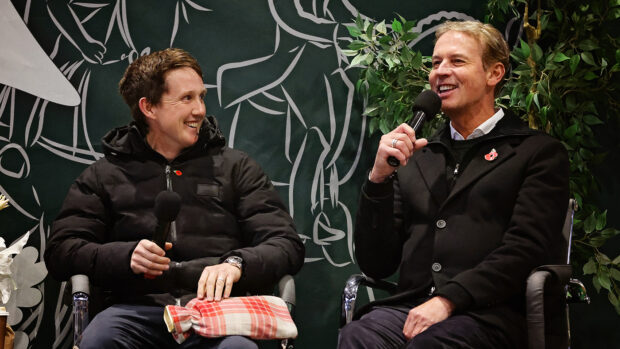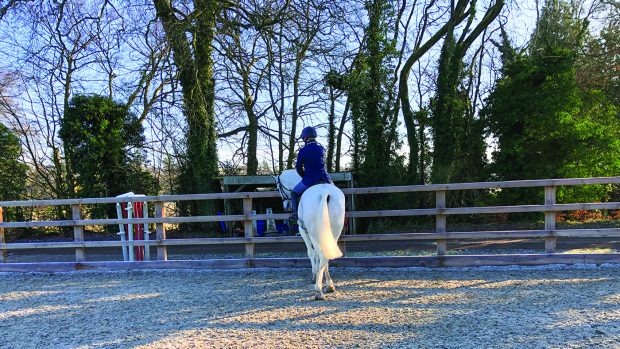Calling all ridersIf you have a training problem or suffer from nerves in the arena, top sports psychologist Nikki Heath will answer your question. . . and there’s a chance to win a prize too!
All you need to do is email your question (one only per user please) to Nikki at nikki@puredressage.com and she will email back an answer.
There’s also a chance to win your own copy of Sport Psychology for Success – Dressage on CD or audio cassette. The three most interesting questions sent to Nikki will win a tape and also be published with the answer on this site at a later date . Together with leading sports psychologist Dr Steve Bull, Nikki Heath also produces Top Notch Dressage,an audio cassette designed to benefit the professional and amateur alike. Competing in dressage competitions doesn’t have to be stressful ever again.
Part 3 – Competition confidence
Contrary to popular opinion, I don’t believe that dressage is a sport for the faint-hearted. It requires a thick skin, a massive degree of self-esteem and a clear structured progress plan.
Dressage riders have to put themselves on display – the equivalent of an audition. They are allowing others to make a personal judgement about their horse, their training and their ability, for an intense, if short, period.
What people see is what they think they have got – the behind the scene activities and the history that has led you to this moment is immaterial – they have to judge what they see and mark accordingly.
You on the other hand will take home a permanent reminder about that day in the form of a set of marks and comments that can appear to be wildly unfair and misinformed.
For some it can feel like a personal attack – not only on your riding ability but also on your judgement and understanding of the sport and more importantly, your training methods.
Dressage is possibly the only sport where elite professionals still report that they can feel self conscious and intimidated. For the less robust, this feeling of exposure can lead to a serious loss of confidence and angst, which results in under performance.
Losing your nerve indressage competitions is rarely to do with the fear of getting hurt or a loss of nerves with a difficult horse. It is associated with the subjective nature of assessment that provokes feelings of inadequacy or incompetence (“nice horse, shame about the rider”).
For some people, the repeated knocks to their self esteem becomes too much and the pleasure of competing diminishes to a point where, even if success is attained, they don’t believe that they deserve it or they feel that the rest of the world feels they don’t deserve it.
Finding the answer
Regaining the pleasure of competitive dressage and rebuilding faith in your abilities can be achieved but it takes work.
Firstly identify what the primary causes are for your loss of confidence, and write them down. It doesn’t matter how ridiculous or self indulgent you think it sounds – just be honest.
Consider the following:
Regaining confidence in this area is about realistic goals, good planning and sticking to your objectives
It’s all a matter of balance and perspective – taking it one step at a time and not feeling intimidated by other peopleor external pressure.
If you allow yourself to feel in control and you dictate the pace of progress, then things should unravel. However, this does not mean that you should not stretch yourself and find new challenges. It is just that the size of thechallenge must not be too far out of your comfort zone.
Next week: Read our three most interesting questions answered by Nikki Heath and find out who has won the prizeFor more advice on preparing for competition and planning for dressage success, listen to Sport Psychology for Success ? Dressage, which is produced in audio cassette and CD format. It retails at £19.95, plus £1.45 P&P .
For more information contact (tel: 01872 270993) or visit www.puredressage.com



